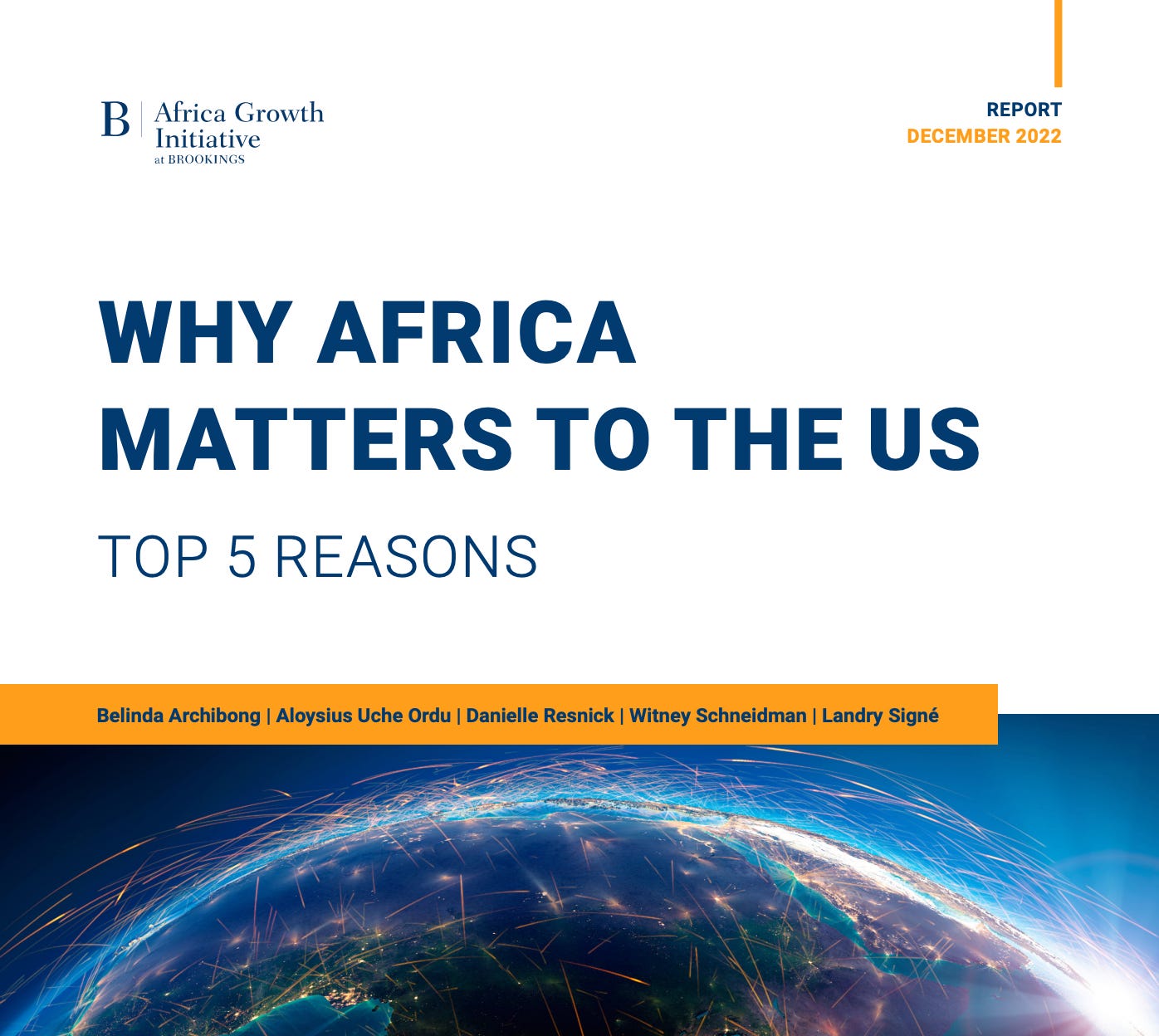Regional Experts' Failure to Disclose Corporate Affiliations at American Universities and Think Tanks Demands Congressional Inquiry
Former CIA, State, and White House Officials Practice of Not Disclosing Covington & Burling and WestExec Advisors Links Should Raise Red Flags

On 29 April 2025, a South African newspaper published an article by Witney Schneidman in defense of Mcebisi Jonas, the chairperson of MTN Group and recently appointed South African special envoy to the United States. At the time of publication, the byline read, “Schneidman is a former U.S. deputy assistant secretary of state for African affairs.”
After the article was published, The Press Council of South Africa was notified of the apparent failure of Schneidman to disclose a serious conflict of interest related to the article. Following that notification, the newspaper corrected the byline with the addition of, “and chaired Covington & Burling’s Africa practice”.

This was a necessary correction for a couple of reasons.
First, MTN Group regularly uses Covington & Burling for legal services. For example, MTN Group is using the firm for legal representation in Anti-Terrorism Act cases in the U.S. The Obama-era attorney general Eric Holder, a senior counsel at Covington & Burling, has even been referred to as “MTN’s favourite lawyer”.
Second, Schneidman has a personal connection with the MTN Group. He was responsible for opening the Covington & Burling office in Johannesburg, South Africa. He is also known to have previously served on industry panels with Jonas. That was in his official capacity as the chair of the Africa Practice at Covington & Burling.

As a consequence, Schneidman created an ethical situation for Business Day by not disclosing his Covington & Burling connection with MTN Group and the MTN chair.
In opinion editorials, it is standard practice for newspapers to require their contributors to “disclose both potentially perceived and actual conflicts of interest to allow others to evaluate the matter and make the decision, rather than keep it to oneself".
The problem is that South African newspapers may not be aware that there are long-standing concerns that U.S. professional services companies use academic and think tank affiliations to launder their commercial affiliations. The conduct of Covington & Burling staff shows why.
A rapid review shows that at least three current or former senior officials at Covington & Burling have published articles on U.S. foreign policy using academic and/or think tank affiliations without a byline disclosure of their affiliation with Covington & Burling. They include Kimberly Breier (Center for Strategic and International Studies), Roger Zakheim (American Enterprise Institute) and Witney Schneidman (Brookings Institute).

Of course, Covington & Burling is not the only professional services company known to have staff who engage in such problematic conduct.
The failure to disclose conflicts of interest is quite common in Washington. Take WestExec Advisors for example.

Like Covington & Burling, it has strong ties to a particular U.S. political party (i.e., Democratic Party). WestExec Advisors is a consulting firm that was founded by senior officials from the Obama Administration, including former Secretary of State Antony Blinken and Under Secretary of Defense Michèle Flournoy.
At WestExec Advisors, there is a large stable of former U.S. ambassadors who served under the Obama and Biden administrations. Unfortunately, those ambassadors often fail to disclose their affiliation with WestExec Advisors.
A rapid review shows that at least six former U.S. ambassadors currently are not disclosing their affiliation with WestExec Advisors in their university and/or think tank profiles. They include ambassadors (retired) Gina Abercrombie Winstanley (Atlantic Council and Middle East Institute), Michelle Gavin (Council on Foreign Relations), James Jeffrey (The Washington Institute for Near East Policy), Dennis Ross (The Washington Institute for Near East Policy) and Erica Barks Ruggles (John Sloan Dickey Center at Dartmouth College).

To compound matters, ambassador (retired) James Jeffrey served as the Chair of the Middle East Program at the Wilson Center until very recently. Like The Washington Institute for Near East Policy, Wilson Center failed to disclose his affiliation with WestExec Advisors in his profile. That is particularly problematic given that the Wilson Center is chartered by the U.S. Congress.

These findings beg the policy-relevant question of whether U.S. universities and think tanks are doing enough to ensure disclosures of corporate conflicts of interest. The Americas Program at the Center for Strategic and International Studies (CSIS) serves as a case in point.
A rapid review shows that CSIS is currently failing to disclose the corporate affiliations of at least five current non-resident fellows in the Americas Program. They include Kimberly Breier (Covington & Butling), Jose Ignacio Hernández (Aurora Macro Strategies), Ariel González Levaggi (TRENDS Research and Advisory), P Michael McKinley (The Cohen Group) and Alexandra Winkler (Deloitte).

These findings should raise flags for Members of Congress.
The failure of U.S. universities and think tanks to disclose the corporate affiliations of their non-resident fellows not only undermines public trust. It also raises important questions about whether these organisations should continue to qualify for tax exempt status, especially when some of the corporations are linked to partisan political action committees.
The U.S. Congress might therefore want to consider conducting a public inquiry into the conflicts of interest of those who are entrusted to produce national security and foreign policy knowledge within U.S. universities and think tanks. As part of that inquiry, members might want to consider new legislation that would require universities and think tanks to make form-based disclosures and quarterly reports similar to lobbying firms.
In the meantime, the U.S. Senate Committee on Foreign Relations could take immediate action to address this problem.
One way would be to send a formal bipartisan request for information to the Acting Commissioner of the Internal Revenue Service, Michael Faulkender, seeking a determination of whether the tax exempt status of any U.S. universities and think tanks is at risk over prior failures to disclose these sorts of conflicts of interest.
Notes: This article was originally published by the Mail & Guardian. External affiliations of the author can be found here.



